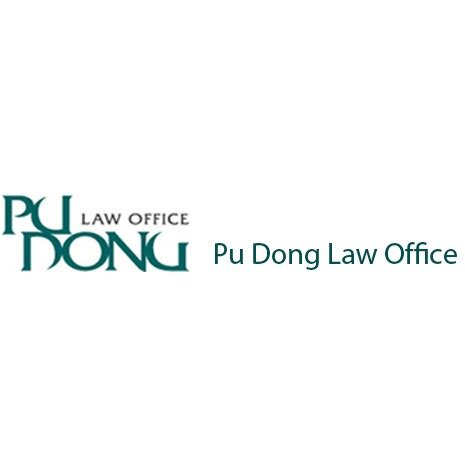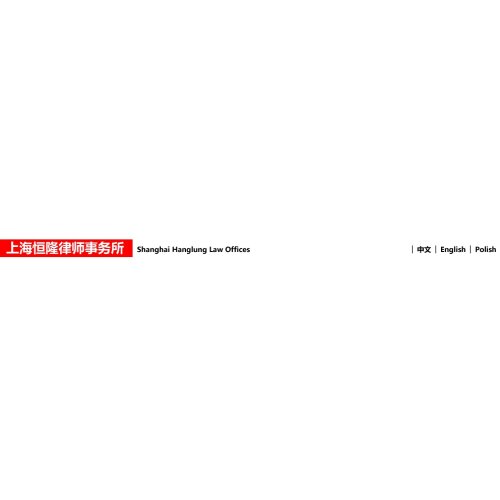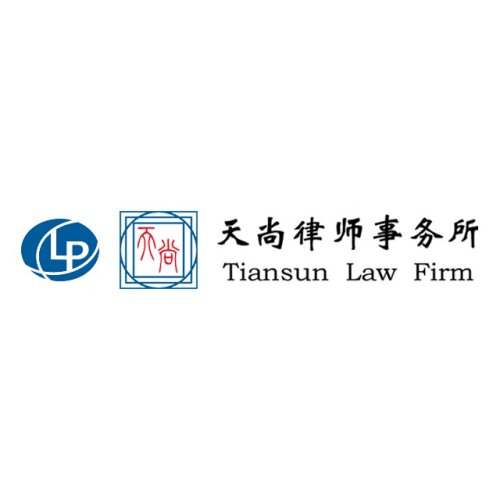Best Climate Change Law Lawyers in Shanghai
Share your needs with us, get contacted by law firms.
Free. Takes 2 min.
List of the best lawyers in Shanghai, China
About Climate Change Law in Shanghai, China
Climate Change Law in Shanghai, China refers to the set of legal rules, regulations, and policy measures designed to reduce greenhouse gas emissions, promote sustainable development, and help society adapt to the challenges of climate change. Shanghai, as a major economic and industrial hub, is at the forefront of climate initiatives in China. Local authorities have implemented various legal frameworks to encourage green energy, improve air quality, control pollution, and meet the country’s commitments to international climate agreements. These laws and policies aim to balance economic growth with environmental protection to ensure a healthier and more sustainable future for all residents and businesses in the city.
Why You May Need a Lawyer
There are many scenarios in which individuals and businesses might require legal assistance with Climate Change Law in Shanghai. These include compliance with new environmental standards, resolving disputes regarding emissions targets, applying for environmental permits, or navigating government incentives and penalties related to climate change measures. Businesses expanding operations may need legal guidance to understand the environmental impact assessments required by law. Property developers, manufacturers, and importers may face complex regulatory hurdles, and failure to comply with environmental laws can lead to substantial fines or other enforcement actions. Legal counsel can help interpret these laws, protect your rights, and represent your interests during negotiations or litigation.
Local Laws Overview
Shanghai has developed a robust legal structure to address climate change. The city enforces both national laws and its own local regulations focused on emission reductions and environmental protection. Key aspects include:
- Emission Control: Shanghai implements strict emission standards for industries, vehicles, and construction projects. The city has also joined China’s national carbon emissions trading scheme (ETS), requiring qualifying enterprises to measure, report, and trade carbon allowances.
- Green Building Regulations: Construction and real estate projects must comply with local green building codes that encourage energy-saving designs and materials.
- Renewable Energy Usage: Policies incentivize the installation and use of solar, wind, and other renewable energy sources, especially in new developments and public buildings.
- Environmental Impact Assessments (EIA): Significant projects must undergo EIA to determine their effect on the environment, followed by public notification and government approval procedures.
- Penalties and Enforcement: Non-compliance with climate-related laws can result in administrative penalties, fines, production restrictions, or project shutdowns.
Additional regulatory changes occur regularly as China works toward its stated goals of carbon peaking and neutrality.
Frequently Asked Questions
What is the main climate change law in China that applies in Shanghai?
China’s main environmental laws, including the Environmental Protection Law and the Atmospheric Pollution Prevention and Control Law, are enforced in Shanghai. Additionally, the city has supplementary local regulations and is actively participating in the national carbon emission trading scheme.
How does Shanghai’s carbon emissions trading system work?
Enterprises that meet the criteria are allocated carbon allowances which they must manage through accurate measurement and reporting. Businesses that exceed their allowance must purchase additional permits through the trading system or face penalties. This system incentivizes companies to reduce emissions.
Do property developers in Shanghai need to comply with green building codes?
Yes, local laws require new construction and major renovations to meet green building standards focusing on energy efficiency, renewable energy integration, and waste reduction.
What are the penalties for violating climate-related regulations in Shanghai?
Penalties can include substantial fines, mandatory suspension or restriction of business operations, and in severe cases, criminal liability for company executives.
Who enforces climate change law in Shanghai?
Enforcement is primarily handled by local branches of the Ministry of Ecology and Environment, the Shanghai municipal government, and other relevant regulatory authorities.
How can businesses apply for government subsidies for green projects?
Businesses can apply through designated government platforms or agencies. Applications typically require documentation of project details, proof of compliance, and environmental impact assessments.
Are there special laws for foreign businesses regarding climate compliance in Shanghai?
Foreign businesses must comply with the same climate and environmental laws as domestic enterprises. Legal counsel is recommended to navigate potential language barriers and regulatory nuances.
Can private citizens report environmental violations?
Yes, individuals can report suspected environmental violations to local authorities or through government hotlines. Whistleblower protections may also apply in certain cases.
What legal remedies exist for those affected by pollution or climate-related harm?
Affected parties may seek damages, request administrative interventions, or file complaints through civil litigation. Lawyers can assist in gathering evidence and navigating complex legal processes.
Is legal advice necessary when dealing with environmental impact assessments?
While not mandatory, legal advice is highly recommended, especially for large projects, to ensure full compliance with all procedural requirements and avoid costly mistakes or delays.
Additional Resources
Several resources are available for those seeking information or support in Climate Change Law in Shanghai:
- Shanghai Municipal Bureau of Ecology and Environment: The primary government body for environmental policy and enforcement in Shanghai.
- Ministry of Ecology and Environment of the People’s Republic of China: Oversees nationwide climate and environmental policy implementation.
- National Carbon Emissions Trading System Service Center: Guidance on carbon trading processes and compliance requirements.
- Environmental Protection Associations: Non-profit groups that offer educational resources and sometimes legal assistance.
- Legal Aid Centers in Shanghai: Provide free or low-cost legal advice for eligible individuals and organizations.
Next Steps
If you require legal assistance related to Climate Change Law in Shanghai, start by gathering all relevant documentation and information about your situation. Research and select a qualified lawyer who specializes in environmental or climate change law and is familiar with Shanghai’s local regulations and procedures. Schedule an initial consultation to discuss your needs and possible strategies. If your situation is urgent, contact your local environmental bureau or legal aid center for guidance. Staying informed and proactive will help ensure your compliance and protect your rights as environmental laws in Shanghai continue to evolve.
Lawzana helps you find the best lawyers and law firms in Shanghai through a curated and pre-screened list of qualified legal professionals. Our platform offers rankings and detailed profiles of attorneys and law firms, allowing you to compare based on practice areas, including Climate Change Law, experience, and client feedback.
Each profile includes a description of the firm's areas of practice, client reviews, team members and partners, year of establishment, spoken languages, office locations, contact information, social media presence, and any published articles or resources. Most firms on our platform speak English and are experienced in both local and international legal matters.
Get a quote from top-rated law firms in Shanghai, China — quickly, securely, and without unnecessary hassle.
Disclaimer:
The information provided on this page is for general informational purposes only and does not constitute legal advice. While we strive to ensure the accuracy and relevance of the content, legal information may change over time, and interpretations of the law can vary. You should always consult with a qualified legal professional for advice specific to your situation.
We disclaim all liability for actions taken or not taken based on the content of this page. If you believe any information is incorrect or outdated, please contact us, and we will review and update it where appropriate.

















